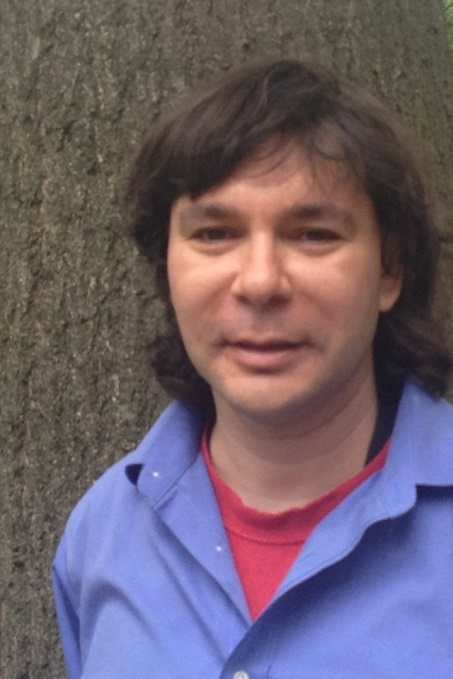Speaking of High-Functioning Sociopaths

Back in 1964, there was an ultraconservative presidential candidate named Barry Goldwater. He was considered so far out of touch with mainstream political thought that some psychiatrists speculated, publicly, that he might be just a few votes short of a caucus, if you know what I mean. This mental-fitness guessing by professionals who had never examined the candidate lead to the American Psychiatric Association adopting the “Goldwater Rule,” which states it is unethical for a shrink to diagnose a public figure they’ve never met.
OK. Makes sense. Sort of.
Fast-forward to 2017, and this is just a long-winded way of introducing my interview subject this week. Jacob M. Appel is author of The Mask of Sanity, a book reviewed in the upcoming March/April edition of Foreword Reviews. The book delves into the mind of a high-functioning sociopath. Appel is many things—a bioethicist, physician, playwright, novelist, and even a lawyer. But he draws upon his experience as a psychiatrist for this chilling book. He knows how a high-functioning sociopath thinks.
In the interview below, Appel discusses how he can enter this scary head-space. Those interested in whether Appel breaks the Goldwater Rule by speculating about any current politician’s mental health might want to take a look at the final question.
In The Mask of Sanity, you go inside the mind of a killer. Many authors claim to do that in murder mysteries, but as a physician do you have better insight into what exactly it means, internally, to be a sociopath?


Jacob Appel: 'I have encountered first hand more than my share of sociopaths.'
I should begin by saying this is not an autobiographical work, nor is Jeremy Balint, the sociopathic protagonist, specifically modeled after any of my patients. But as a psychiatric resident, I did work in a state forensic facility, and I currently practice in an urban psychiatric emergency room, so I have encountered first hand more than my share of sociopaths. I’ve also read extensively in the professional literature on sociopathy. In writing The Mask of Sanity, I tried to use an approach similar to method acting: as I developed each scene, I asked myself, “If I were a sociopath, how would I respond? What would I do next?” Most laypeople assume that sociopaths are irrational creatures who do evil for the sake of evil; in reality, I have found them to be deeply rational in their pursuit of self-interest, only resorting to evil when doing so is necessary to meet their other goals.
You seem like a poster boy for indie publishing. Why? Do you like the control that comes with it?
I’m not sure if being the poster boy for indie publishing is a sensible career goal—I was rather hoping to appear on a Wheaties box—but I suppose I should embrace the role. I do think independent publishing has a lot to be said for it, not only with regard to control, but because the editors and publishers I have worked with (and often become friends with) are deeply invested in the success of my books. When a publishing house publishes twenty books a year, each book matters. When a publisher also sells household appliances in Germany, one wonders how committed they are to each of their authors. That being said, I’d be glad to receive a six figure book deal with a major publishing house, especially if it comes with free appliances for my kitchen.
You’re a physician, bioethicist, psychiatrist, author, playwright, and lawyer. Do you ever eat or sleep?
No. Eating and sleeping are both obstacles to a literary career. One of my hobbies is reading literary biographies. I’ve recently read wonderful biographies of E. M. Forster, Muriel Spark, Donald Barthelme, Doris Lessing, John Fowles, and Samuel Johnson (a rather broad range of English-language authors) and not one of their biographers ever mention a word about sleeping or eating. And ask yourself: When was the last time you spotted a famous writer in a restaurant? I suppose some authors, when they’re successful enough, have lunches with editors and agents at upscale bistros, but that’s usually once they’re so established, they can afford a few hours off.
You do a lot of your own book promotion through platforms like Goodreads. Is this what all authors need to do?
Goodreads helps. I generally give away electronic free copies of my backlist collections to anyone who asks. (Feel free to email me at jacobmappel@gmail.com if you’d like a free copy of one of my earlier books in PDF format.) I travel to virtually any venue interested in hosting an event: libraries, book stores, book clubs, weddings, bar mitzvahs. I pray for miracles. I sell my soul to men with horns in the hope they will adjust fate on my behalf. I offer romantic services to famous authors in return for endorsements. Basically, I’ll do anything to sell a book. Except windows. Everyone has his limits.
As a bioethicist, what will be our most immediate ethical dilemma? Gene editing technology?
Gene editing holds great promise, but it’s not remotely our most immediate ethical dilemma. The great ethical challenges are the same ones we have faced for many years: That more than half the world’s population lives without basic freedoms and 50% of the world’s children are born into poverty. Human cloning and three-parent babies are fascinating topics, if you live in Chappaqua or Scarsdale and have lots of free time to reflect. They’re secondary issues if you’re a journalist being tortured in Eritrea or a democracy activist imprisoned in Equatorial Guinea. I’d ask that everyone reading this interview look up the Eritrean dictatorship on line and then write an email or letter to his or her congressperson demanding action.
You can refuse to answer this if you’d like. But as a psychiatrist, what’s your professional diagnosis of Donald Trump?
I’m not allowed to comment on the mental health of a person I have never personally examined. The American Psychiatric Association prevents this through the “Goldwater rule,” enacted after a number of headshrinkers declared Barry Goldwater mentally ill in 1964. (For the record, I do think the Goldwater rule should be repealed.) So while I cannot comment on Trump specifically, I will say that The Mask of Sanity offers an excellent account of a high-functioning sociopath….your readers, on their own, can decide if he reminds them of anyone.

Howard Lovy is executive editor at Foreword Reviews. You can follow him on Twitter @Howard_Lovy
Howard Lovy
